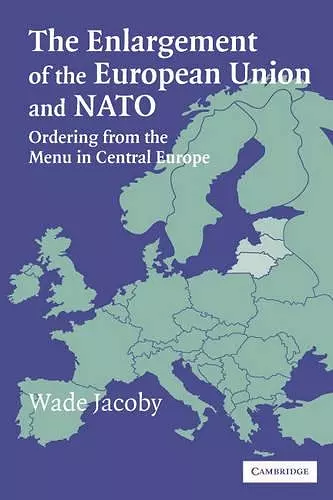The Enlargement of the European Union and NATO
Ordering from the Menu in Central Europe
Format:Paperback
Publisher:Cambridge University Press
Published:9th Jan '06
Currently unavailable, and unfortunately no date known when it will be back
This paperback is available in another edition too:
- Hardback£90.00(9780521833592)

Examines changes made by Eastern and Central European countries to qualify for EU and NATO membership.
In 2004 the EU and NATO each added ten new member states, most from Eastern and Central Europe. In order to qualify for membership, they often emulated practices common in Western Europe. Professor Jacoby examines the successes and failures in a number of fields and in several countries.In 2004 the European Union and NATO each added ten new member states, most from the post-communist countries of Eastern and Central Europe. In order to prepare for membership, these countries had to make many thousands of institutional and legal adjustments. Indeed, they often tried to modernize in just a few years, implementing practices that evolved over many decades in Western Europe. This book emphasizes the way that policy elites in Central and Eastern Europe often 'ordered from the menu' of established Western practices. When did this emulation of Western practices succeed and when did it result in a fiasco? Professor Jacoby examines empirical cases in agriculture, regional policy, consumer protection, health care, civilian control of the military, and military professionalism from Hungary, the Czech Republic, Poland, Bulgaria, and the Ukraine. The book addresses debates in institutionalist theory, including conditionality, Europeanization, and external influences on democratic and market transitions.
'Jacoby's book offers a deep and unique insight'. Steve Schwarzer, European Societies
'Mixing thoughtful analysis and detail with great aplomb the publication of Jacoby's book is very much to be welcomed.' Slavonic & East European Review
ISBN: 9780521682084
Dimensions: 228mm x 157mm x 19mm
Weight: 450g
304 pages